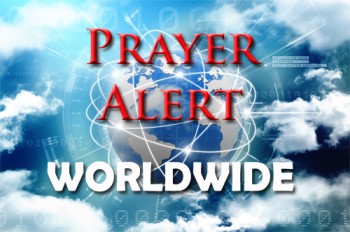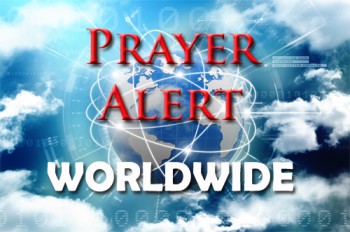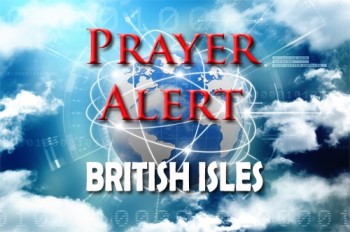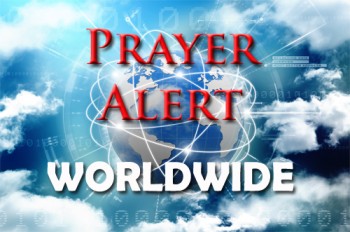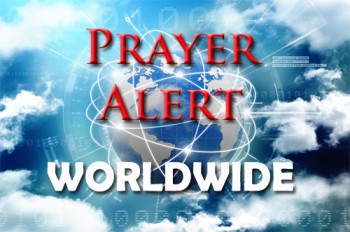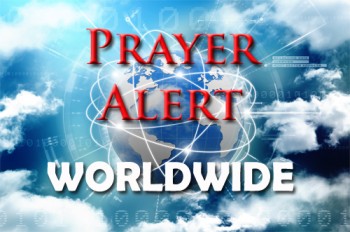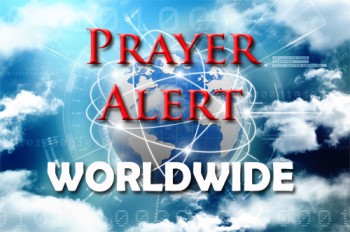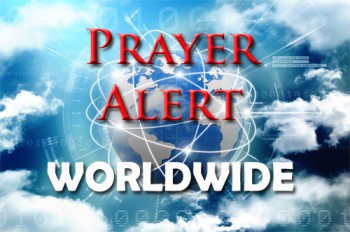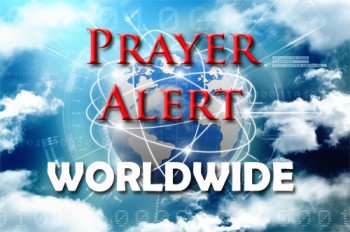Displaying items by tag: South Sudan
South Sudan: peace talks face stumbling block
South Sudan's peace talks, which have been hosted by Kenya since May, were nearing completion, but are facing a setback due to opposition demands to revoke a bill permitting detention without warrants. The talks - dubbed Tumaini, Swahili for hope - have resulted in a draft agreement proposing to extend the country's transitional period and postpone the coming election (due on 22 December) to allow finishing up the country's constitution and electoral laws. However, opposition leader Pagan Amum Okiech has refused to sign an agreement unless the proposed National Security Act is repealed. He says, ‘This law violates the fundamental rights and freedoms of South Sudanese citizens; it eliminates civic and political space. There can be no peace or democracy under such a law.’ Human Rights Watch has called on President Kiir to reject the bill, warning it undermines human rights and democratic progress.
South Sudan: refugee camp’s conflict
People escaping the fighting in Khartoum are creating a crisis in South Sudan. Roughly 50,000 Sudanese refugees have fled to South Sudan. However, putting people from different tribal groups in the same refugee camp creates fear and anxiety, with tensions boiling over. In many of these regions, there is much hostility. Even in the city of Malakal 13 people were killed in a conflict in the United Nations refugee camp. Orphanages are being evacuated and children displaced. For refugee children, going from fighting in their home country to fighting in the refugee camp is frightening. Child Evangelism Fellowship has been serving refugee camps in South Sudan since 2016. Its staff now want to reach this new wave of Sudanese refugees and children pouring in from the northern border. It has a burden to bring relief, comfort, and the gospel. However, some of South Sudan’s northern cities are difficult and even dangerous to get into.
UK urged to finance South Sudan peace-building
A Christian Aid poll reveals 53% of British adults agree that the government should be a leader in providing humanitarian aid and commit to financing a peace process in South Sudan. The leaders of Christian Aid, CAFOD, and Tearfund have written a joint open letter to the PM after the Pope, the Archbishop of Canterbury, and the Moderator of the Church of Scotland visited South Sudan last week. The charities warned of South Sudan’s growing hunger crisis with 54% of the population already living with crisis-level food insecurity. Despite the worsening situation, the UK's aid budget for South Sudan was cut by 59% in 2021. This triggered cuts to critical peacebuilding and resilience work with communities. CAFOD’s director said that the people of South Sudan have suffered much due to conflict and instability, but instead of being able to rely on UK support, the UK has cut its funding.
South Sudan: churches write to leaders
The Archbishop of Canterbury, Pope Francis, and Church of Scotland moderator Jim Wallace have written to South Sudan's political leaders on the tenth anniversary of its independence. They said that the anniversary calls to mind past struggles and points with hope to the future, and that the nation is blessed with immense potential. They encouraged leaders to make even greater efforts to enable their people to enjoy the full fruits of independence. They also said, ‘When we wrote to you at Christmas, we prayed that you might experience greater trust among yourselves and be more generous in service to your people. Since then, we are glad to see some small progress. Sadly, your people continue to live in fear and uncertainty, and lack confidence that their nation can indeed deliver the “justice, liberty and prosperity” celebrated in your national anthem. Much more needs to be done to shape a nation that reflects God’s kingdom.’
Help for South Sudan
The EU has joined the United States in sending humanitarian aid to South Sudan. Contributions of more than $145 million will provide food, medical aid, and shelter. World Concern’s Joshua Bundi says the help could not have come at a better time. South Sudan is on the brink of famine thanks to the fallout of several compounded crises. Bundi said. ‘We’ve had the worst flooding in modern history. Over eight million South Sudanese need humanitarian aid to survive another day; half of them are children. Thankfully, hope reigns triumphant in South Sudan.’ The church is meeting the needs of the people and preaching the gospel.
Sudan: starvation is a war weapon
Starvation is being intentionally used as a war tactic in South Sudan’s brutal conflict, a UN-backed human rights panel report stated. South Sudan gained independence in 2011 but descended into conflict 2½ years later, following tensions between President Salva Kiir and his deputy. Most South Sudanese are Christian, whereas the majority in Sudan belong to the Sunni branch of Islam. Religion deeply influences governance and daily life, playing a dominant role in the nation's politics. The brutal fighting has caused incalculable suffering to civilians, and resulted in staggering levels of acute food insecurity and malnutrition. 7.5 million South Sudanese, in several areas, currently require humanitarian assistance. Both governments and opposition forces have deliberately used the starvation of civilians as a method of warfare in these areas, sometimes as an instrument to punish non-aligning communities, as in the case of Jonglei.
Africa: locusts, drought, famine
Somalia has declared a national emergency as desert locusts destroy vegetation. An average swarm containing 40 million insects can travel 150 km in 24 hours, devouring enough food to feed 34 million people in that time. The UN said it is a race against time to tackle this invasion amidst ongoing humanitarian challenges. A spokesman said, ‘We do have a chance to nip this problem in the bud, but that’s not what we’re doing at the moment.’ Kenya’s food security is threatened, particularly communities keeping livestock on endangered pastures. Swarms crossed into Uganda on 9 February, and Tanzania and South Sudan are now on the UN’s ‘watch list’. Also, insufficient rain means that over two million Somalis will need emergency food aid this year after the worst harvest in 25 years. 300,000 were displaced in eight months; many have headed for the capital, Mogadishu. Six million Kenyans are food-insecure, while seven million Zimbabweans need aid after successive droughts and an inflation rate of 300%. Urban families are feeling the pinch of soaring prices. See
South Sudan: floods displace thousands
Heavy rain and severe flooding in South Sudan have caused severe damage to refugee camps, destroying housing, roads, and schools. Many have been left in search of dry ground. With water levels often over a metre high, 200,000+ people are estimated to have been affected, causing large displacement of local and refugee communities. Significant damage to food crops and livestock has diminished the communities’ ability to begin effective recovery from the most devastating flooding experienced in over four decades. Infrastructural damage to bridges and roads prevents access to communities whose day-to-day survival is dependent on humanitarian assistance. Agencies reported serious flood damage in office compounds, warehouses, staff housing, and student learning and sleeping areas.
Horn of Africa: flood devastation
Increased temperatures in the Indian Ocean have caused heavy rainfall and widespread flooding and destruction in different countries. In Kenya 29 people were killed in flash floods, nearly 12,000 have been displaced, and agriculture is hard hit, with 10,000+ livestock animals drowning. Caritas has appealed for food, first aid, and funds to distribute to the needy. In South Sudan, Bishop Majwok has requested the government to declare a state of national disaster as 283,000 square kilometres of his diocese are under water. Rains have devastated the country since July. Wet weather has worsened the humanitarian situation in 32 counties, where over three million people already needed assistance. In Somalia over 182,000 people are homeless due to flooding; most are from the central town of Beledweyne, where the UN reports people drowning. East Africa's rainy season, which runs from October to December, is likely to be unusually wet this year due to a process known as Indian Ocean Dipole (similar to the Pacific El Nino) by which atmospheric humidity is dumped inland as rainfall.
South Sudan: Pope kisses the feet of leaders
After being invited to an unprecedented 24 hours of prayer and preaching in the Vatican, South Sudanese leaders appeared stunned as the 82-year-old pontiff, who suffers from chronic leg pain, was helped by aides to kneel and kiss the shoes of the two main opposing leaders. He appealed to President Salva Kiir, his former deputy turned rebel leader Riek Machar, and three other vice-presidents to respect an armistice they signed and commit to forming a unity government next month. ‘I am asking you as a brother to stay in peace. I am asking you with my heart, let us go forward. There will be many problems, but they will not overcome us’, the Pope said. His appeal was made more pressing as anxiety grew over the coup in neighbouring Sudan, which could risk the fragile peace deal that ended South Sudan’s brutal five-year civil war.
